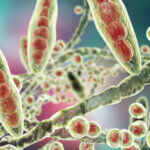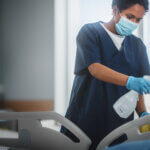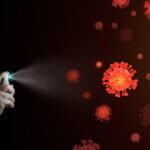A recent surge in respiratory illnesses among children has captured the spotlight in China, with the National Health Commission of China reporting a widespread increase in respiratory diseases affecting the younger population.
Recognizing the gravity of the situation, the World Health Organization (WHO) has called upon China’s health authorities to provide more detailed information on clusters of pneumonia in children to understand the severity of the illness. Since China was the origin of the SARS-CoV-2 and subsequent COVID-19 pandemic, there is an urgent need for heightened vigilance for global health considerations.
What is the cause of childhood pneumonia in China?
The cause of childhood pneumonia in China is Mycoplasma pneumoniae. The bacterial infection affects the upper and lower respiratory tract and has resulted in increased hospitalization of children in northern metropolises such as Beijing. Infection is more common in children than adults and can cause mild to life-threatening implications.
Mycoplasma pneumoniae is identified as the common cause of Community-Acquired Pneumonia (CAP) in children. It is also referred to as “walking pneumonia” or “atypical pneumonia”.
What is Mycoplasma pneumonia and its pathogenicity?
Mycoplasma pneumonia was isolated as an infectious agent from the sputum of a patient with primary atypical pneumonia in 1944 by Eaton et al. Initially, presumed to be a virus, it was later identified as a bacterium called Mycoplasma pneumonia belonging to the family Mycoplasmataceae.
Mycoplasma pneumonia is one of the smallest self-replicating pathogens, with a size of 1 to 2 μm in length and 0.1 to 0.2 μm in width. Its small size allows bacteria to pass through viral filters.
Mycoplasma pneumoniae signs and symptoms
Mycoplasma pneumoniae disease primarily targets the respiratory tract, leading to symptoms such as –
- sore throat,
- hoarseness,
- ever,
- cough,
- headaches,
- chills,
- tiredness,
- general malaise
The onset of symptoms is gradual, typically taking a few days to a month to manifest. In severe cases, complications may include encephalitis, hemolytic anemia, Renal dysfunction, optic neuritis, acute disseminated encephalomyelitis, cranial nerve palsy, etc. Hence, immediate hospitalization is crucial in cases of severe complications.
Prevention measures against Mycoplasma pneumonia
Mycoplasma pneumonia infections are mainly transmitted through sneezing and coughing. Therefore, adopting effective preventive measures and hygiene practices can help to minimize the risk of infections. Key measures include –
- Isolation from crowded places – Avoid crowded areas or spaces where people gather in large numbers.
- Good hand hygiene practices – Regular and thorough handwashing is imperative, particularly after sneezing and coughing, before eating, after eating, and using toilets.
- Respiratory Etiquette – Covering the mouth while sneezing and coughing helps prevent respiratory droplets from dispersing into the air and potentially infecting others.
How MIS can help with testing against Mycoplasma pneumonia?
Like China, Mycoplasma pneumonia cases have also been reported in several European countries, prompting the need for precautionary measures to prevent infection.
At MIS, we globally assist companies and clients in evaluating the efficacy of their products designed for Mycoplasma pneumonia decontamination. Our comprehensive testing portfolio encompasses disinfectant products, hand sanitizers, and antiseptic products.
Backed by a highly skilled team of microbiologists, our testing services are meticulously crafted to align with the distinct requirements of clients, ensuring precision and accuracy in results.
For more information on Mycoplasma pneumoniae product testing, please consult with our experts today.









